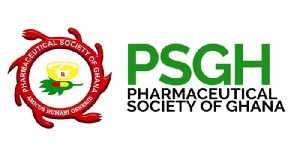The Pharmaceutical Society of Ghana (PSGH) has issued a stark warning about the potential collapse of the country’s local pharmaceutical industry due to the devastating impact of illegal mining activities, commonly known as galamsey.
Speaking at a public health forum in Cape Coast on Thursday, PSGH President Dr. Samuel Kow Donkor stated that the contamination of water bodies and plant life — essential raw materials for pharmaceutical production — poses an existential threat to the industry.
“Ghana currently depends on 70% of its medicines from imports,” Dr. Donkor stated. “The locally produced medicines need quality water for production, especially for infusion manufacturing. When our water treatment plants are shut down because of galamsey, we will face a catastrophic scenario.”
Dr. Donkor explained that pharmaceutical manufacturing requires highly purified water and uncontaminated botanical ingredients, both of which are under threat due to widespread pollution caused by illegal mining operations in river basins and forested areas.
A Looming Public Health Crisis
The PSGH fears that if immediate action is not taken to stop galamsey, Ghana could soon find itself fully dependent on imported medicines, further straining the healthcare system and foreign exchange reserves.
“We will not only import our medicines — we will completely collapse our local pharmaceutical industry,” Dr. Donkor warned.
More Than an Environmental Issue
Beyond environmental and public health implications, the PSGH framed the issue as one of national security. The sustainability of local drug production, they argued, is a strategic priority — not just for access to affordable medication but also for emergency preparedness and economic resilience.
Dr. Donkor called on policymakers, environmental agencies, traditional leaders, and the security services to act decisively in tackling illegal mining, stressing that failure to do so would erode decades of progress in building local pharmaceutical capacity.
The forum, attended by healthcare professionals, pharmacists, and public officials, also highlighted the broader health dangers posed by galamsey, including rising heavy metal contamination in water supplies, which has been linked to organ failure, developmental disorders, and cancer risks.
 Adoa News Adoa News
Adoa News Adoa News




